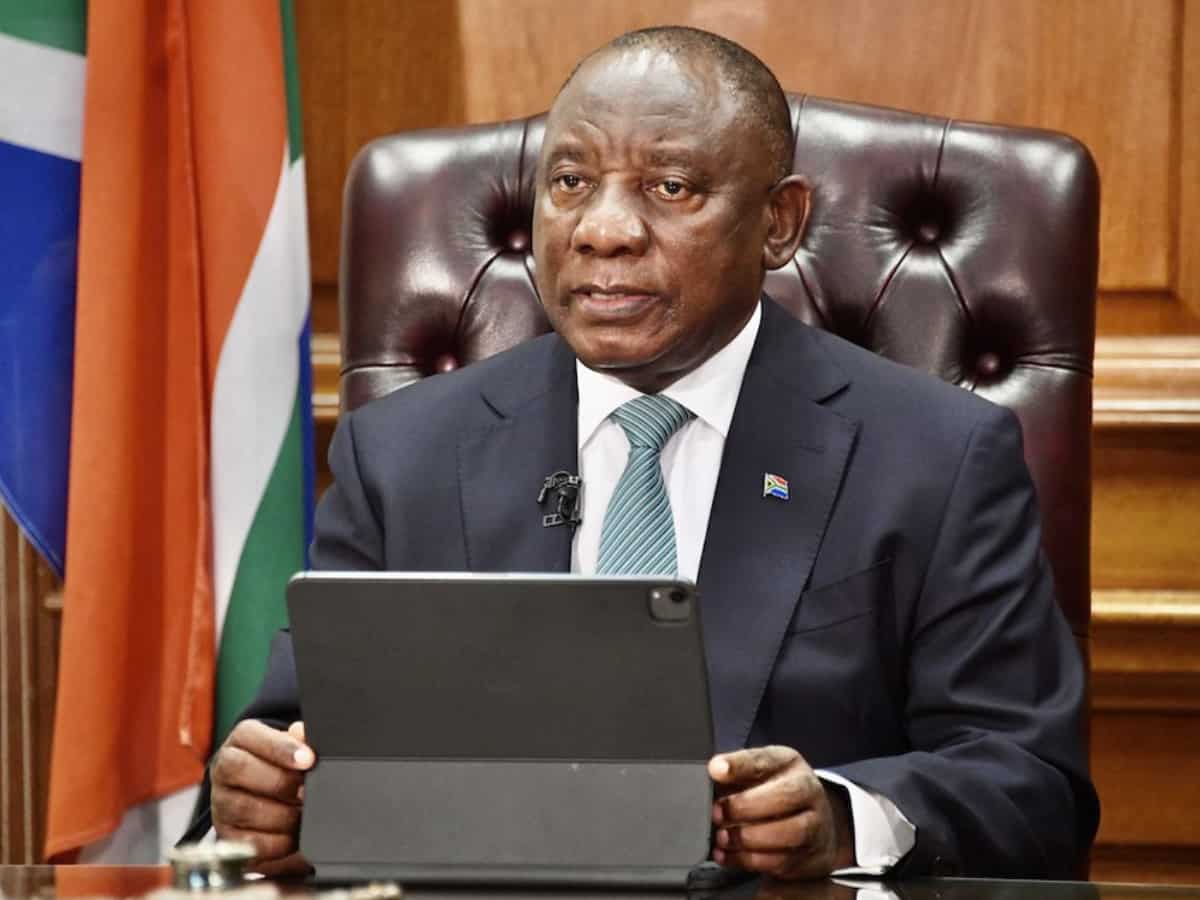
Johannesburg: South African President Cyril Ramaphosa has said the International Court of Justice has vindicated his country’s decision to charge Israel of genocide during its military offensive in Gaza.
The top UN court on Friday stopped short of ordering a ceasefire in Gaza but demanded that Israel try to contain death and damage in its military offensive. South Africa, which brought the case, had asked for the court to order Israel to halt its operation.
The top UN Court court decided not to throw out genocide charges against Israel for its military offensive in Gaza, as part of a preliminary decision in the case.
In a national TV broadcast on Friday evening, Ramaphosa said the International Court of Justice on Friday issued a ruling that is “a victory for international law, for human rights, and above all, for justice”.
“The court has concluded that pursuant to Article 9 of the (1948 Genocide) Convention, it has jurisdiction to adjudicate our application. The effect of the order that the ICJ has granted today is that there is a plausible case of genocide. This follows the unprecedented action taken by South Africa to take another country to the International Court of Justice,” he said.
The president said the ICJ ruling marked an important first step in South Africa’s quest to secure justice for the people of Gaza.
“Some have told us to mind our own business. Others have said it was not our place. And yet it is very much our place, as people who know too well the pain of dispossession, discrimination, and state-sponsored violence.
“We are also a people who were the victims of the crime of apartheid. We know what apartheid looks like. We experienced and lived through it. Sadly, many people died and were exiled like our beloved leader Oliver Tambo and others, others were jailed, like the father of our democracy (Nelson Mandela) and others were maimed,” Ramaphosa said.
He said, “We, as South Africans, will not be passive bystanders and watch the crimes that were visited upon us being perpetrated elsewhere. We stand on the side of freedom for all. We stand on the side of justice.”
Paraphrasing a statement by Nelson Mandela made 30 years ago when he was elected South Africa’s first democratically elected president, Ramaphosa said, “We say again today, never, never and never again shall it be that acts of genocide are perpetrated with impunity as we, the international community look on.”
The president said he firmly believed that following this judgment there should now be a more concerted effort towards a ceasefire.
“Negotiations should commence on a permanent two-state solution, to enable Israel and Palestine to live side by side as independent states,” he said as he thanked those in the international community who had supported South Africa’s application to the ICJ.
“We will not waver in our commitment to the Palestinian people and their quest for self-determination. Our own painful history obliges us to do no less. We thank the International Court of Justice for upholding its role of achieving justice, promoting peace, preventing genocide and holding those guilty of genocide accountable,” Ramaphosa said.
South Africa filed the ICJ application on December 29 last year, arguing that Israel was in breach of its obligations under the 1948 Genocide Convention.
The ICJ, as the principal judicial organ of the United Nations, handed down a ruling that Israel should immediately implement a set of provisional measures to prevent any further acts of genocide in Gaza, desist from such acts, and take effective measures to prevent the destruction and ensure the preservation of evidence relating to acts of genocide.
“As the South African Government, we welcome the decision of the ICJ. We note the court’s statement that it is acutely aware of the extent of the human tragedy that is unfolding in the region and is deeply concerned about the continuing loss of life and human suffering and that the catastrophic humanitarian situation in the Gaza Strip is at serious risk of deteriorating further before the court renders its final judgement.
“This order is binding on Israel, and must be respected by all states that are party to the Convention on the Prevention and Punishment of the Crime of Genocide,” Ramaphosa said in a veiled reference to the US, UK and other countries who are supporting Israel.
“We expect Israel as a self-proclaimed democracy and a state that respects the rule of law to abide by the measures handed down by the International Court of Justice. After more than half a century of occupation, dispossession, oppression and apartheid, the Palestinian people’s cries for justice have been heeded by an eminent organ of the United Nations,” Ramaphosa concluded.
